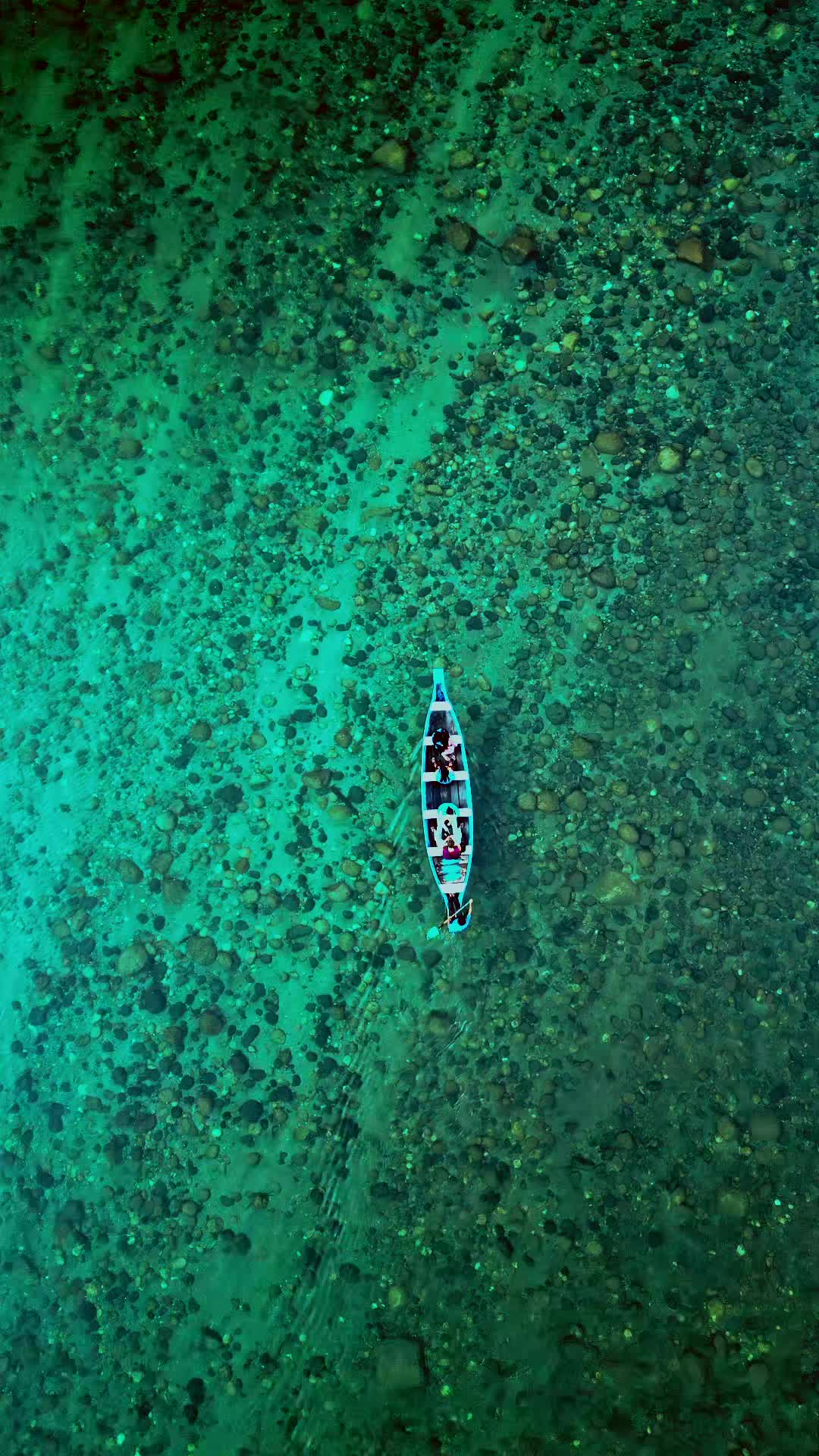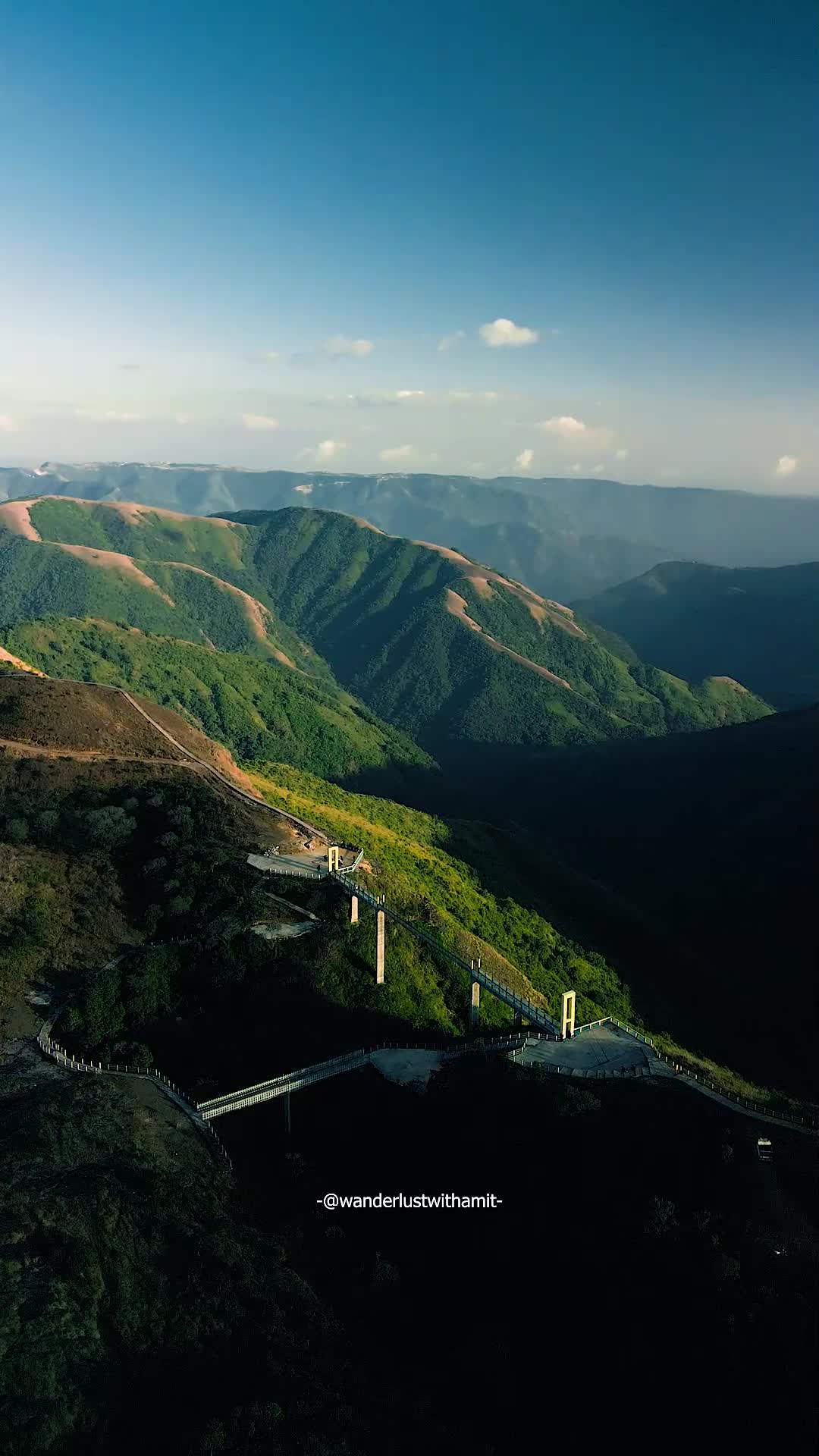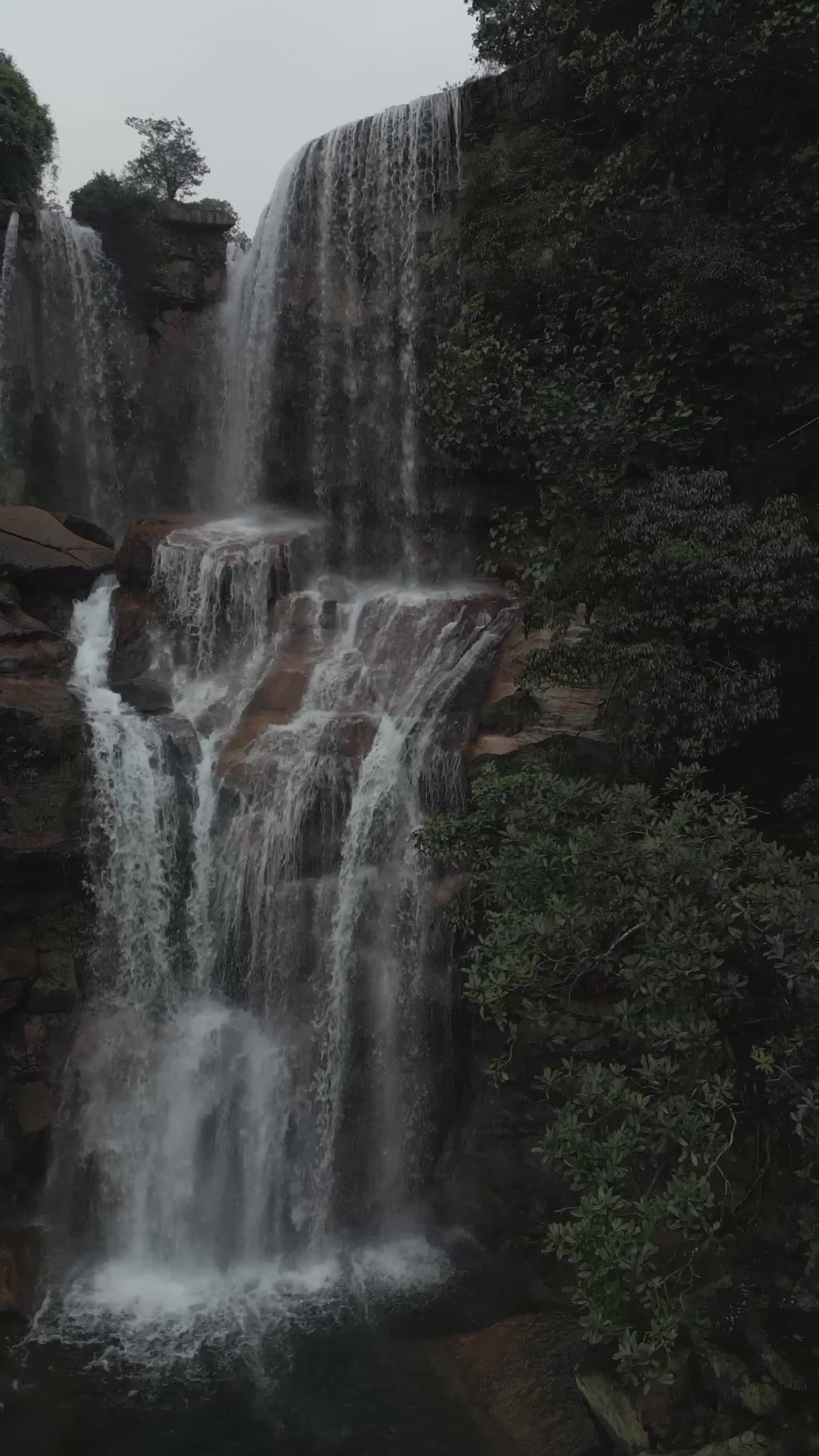Long before Dainthlen became a popular waterfall stop near Sohra, it was the center of one of the Khasi community’s most powerful legends, the story of a monstrous serpent called the Thlen. According to local folklore, the Thlen lived in a nearby cave and terrorized travelers, devouring half the people who passed by and sparing the rest. For years, fear gripped the villages, until one brave man, U Suidnoh of Laitryngew, came to slay the serpent.
Even today, if you walk along the rocks at the falls, you’ll see natural grooves and shapes that people say look like pieces of chopped meat, reminders of the serpent’s fate. But the story doesn’t end there. According to the tale, a leftover piece of the Thlen was unknowingly carried away by a woman who later became the first Thlen Keeper .
How to Get There
Dainthlen Falls is located just 5 kilometers before Sohra (Cherrapunji) and about 55 kilometers from Shillong. The drive takes approximately 2 to 2.5 hours, and the road is in good condition for most of the way. A small detour from the main road leads to a parking area near the falls.
There’s no trek involved. From the parking area, a paved footpath leads directly to the edge of the falls. It’s accessible and requires minimal walking and suitable for all age groups.
What to Expect
The waterfall is a straight drop of around 80 meters during the monsoon season and flows into the plains of Bangladesh. In the dry season, water levels drop enough that you can walk to the other side of the cliff to get a rare frontal view of the falls.
It isnt advisable to swim or dip here, the current is strong and the rocks are slippery. It’s best viewed and explored from the surface level.
For the Adventurous
While there’s no trekking involved, the terrain around the falls is great for walking, photography, and light exploration. The natural rock bed, which locals say resembles the remains of the serpent Thlen, adds to the uniqueness of the location. If you enjoy landscapes with a story, this place gives you both: raw natural power and deep cultural lore.
The surroundings are wide open, perfect for drone shots or panoramic views of the Sohra plateau.
Good to Know
Best time to visit: November to April (dry season for easier access and clearer views)
No swimming or dipping allowed — slippery rocks and strong current
No shops or stalls nearby — carry your own water and snacks
The site is undeveloped — no safety barriers or official viewpoints
No entry fee
Limited mobile network around the falls
Combine it with nearby Sohra attractions for a full day itinerary


















